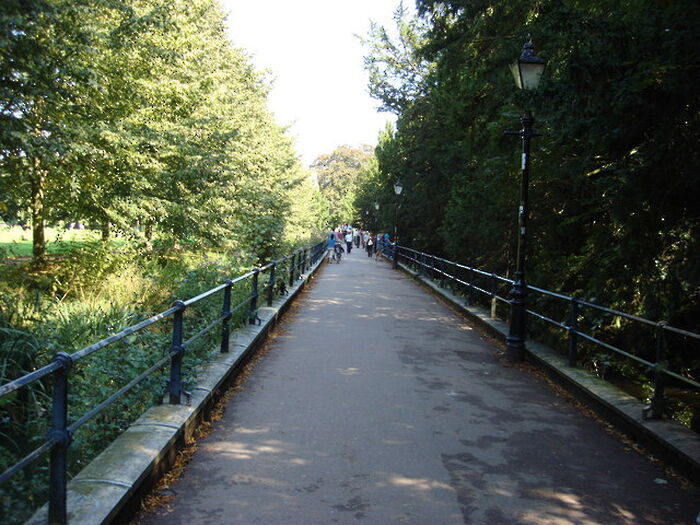Global ancestry and issues of belonging
Inez Daltrop tells the story of how the traumas faced by her grandparents have fed into an understanding of her own identity

I have always found it difficult to talk about ‘home’ and how I see myself, especially when it comes to my nationality, ethnicity, and religion. I’ve lived in four different countries and grew up in a diverse cultural environment where constant interaction with different customs was the norm. However, as I got older, this often led to tension between the two strongest strands of my identity, Indonesian and English. These were complementary most of the time, but certain topics and conversations caused them to chafe painfully against each other. That is not to say that different cultures breed inherent incompatibilities, but that I have found it difficult to accept and reconcile the multiple strands of my personality.
To say that the traumas experienced by my grandfathers have led to ‘issues of belonging’ puts it very lightly
There’s another level to my own issues of belonging: that of my grandparents. I didn’t really think about the ramifications of my family’s history until recently, but it has now begun to feed into my understanding of my own identity. To say that the traumas experienced by my grandfathers have led to ‘issues of belonging’ puts it very lightly; while the phrase somewhat succinctly summarises my own experience, it is an inappropriate way of describing their separate circumstances. I never got to speak to my Opa and Angguik (German and Minangkabau for grandfather, respectively) about it first-hand, but I am certain that the emotions conjured up by their displacement cannot be condensed into some snappy title.
My Opa and his younger sister fled Nazi Germany shortly before the outbreak of the Second World War. The Kindertransport program resettled 10,000 unaccompanied Jewish children from Germany, Austria, Czechoslovakia and Poland with British families and foster homes. My Opa lived and attended school in Bristol, but did not speak a word of English when he arrived. He didn’t talk about Germany with his sister, and later joined the Intelligence Corps of the British Army during the post-war occupation of his native country. After the war, they found out that their parents were the only ones to survive the Holocaust out of their large extended family.
I am certain that displacement conjured up emotions that cannot be condensed into some snappy title
In 1947 my Angguik was captured and imprisoned in West Sumatra while fighting Dutch forces. Even though Indonesia declared independence in 1945, the Dutch refused to leave the country. This sparked the Indonesian National Revolution, which saw four years of armed conflict and the transformation of Indonesian society. The conflict continued until the Dutch withdrew and finally recognised Indonesian independence in 1949. According to a family tale, my Angguik had escaped prison with the help of a cat leading him through the prison gutters.
Both my grandfathers were displaced from their homes in different ways. My Opa escaped persecution by fleeing to England, and monumental socio-political changes provoked my Angguik to leave his native village in West Sumatra for Jakarta, the capital city. This is, again, only a summary of their experiences, for the trauma of ethnic-cleansing and colonial desecration cannot be put neatly. It is an attempt to collect and combine aspects of my ancestry with each other, and to see how they have affected me.
This sense of dislocation was passed onto my parents, whose perceptions of home and heritage continued to change throughout their lives. It’s no coincidence that my father chose jobs that involved extensive travel, which led to him meeting my mother, whose marital expectations were complicated by her international education and employment. Their marriage was initially a shock for both sides of the family, especially for my Indonesian grandparents who had expected my mother to marry an Indonesian Muslim. Identity is not defined by nationality, nor is it predetermined: my Opa’s Indonesian, Portuguese and Jamaican grandchildren are evidence of this.
The displacement felt by those subject to colonisation and persecution is passed down through generations in a modified form, even after the traumatic conditions that produced it have finished. This feeling has diluted with each generation in my family. By no means are any of these stories tidy, and my experience is becoming more common as globalisation has led to an increase in mixed marriages. Identity is not simple, but rather a collection of multiple partial characteristics. Having realised that the various aspects of my identity have come to form a harmonious blend, I have found it easier to navigate between the two.
 Features / Should I stay or should I go? Cambridge students and alumni reflect on how their memories stay with them15 December 2025
Features / Should I stay or should I go? Cambridge students and alumni reflect on how their memories stay with them15 December 2025 News / Cambridge study finds students learn better with notes than AI13 December 2025
News / Cambridge study finds students learn better with notes than AI13 December 2025 News / Uni Scout and Guide Club affirms trans inclusion 12 December 2025
News / Uni Scout and Guide Club affirms trans inclusion 12 December 2025 Comment / The magic of an eight-week term15 December 2025
Comment / The magic of an eight-week term15 December 2025 News / Cambridge Vet School gets lifeline year to stay accredited28 November 2025
News / Cambridge Vet School gets lifeline year to stay accredited28 November 2025









